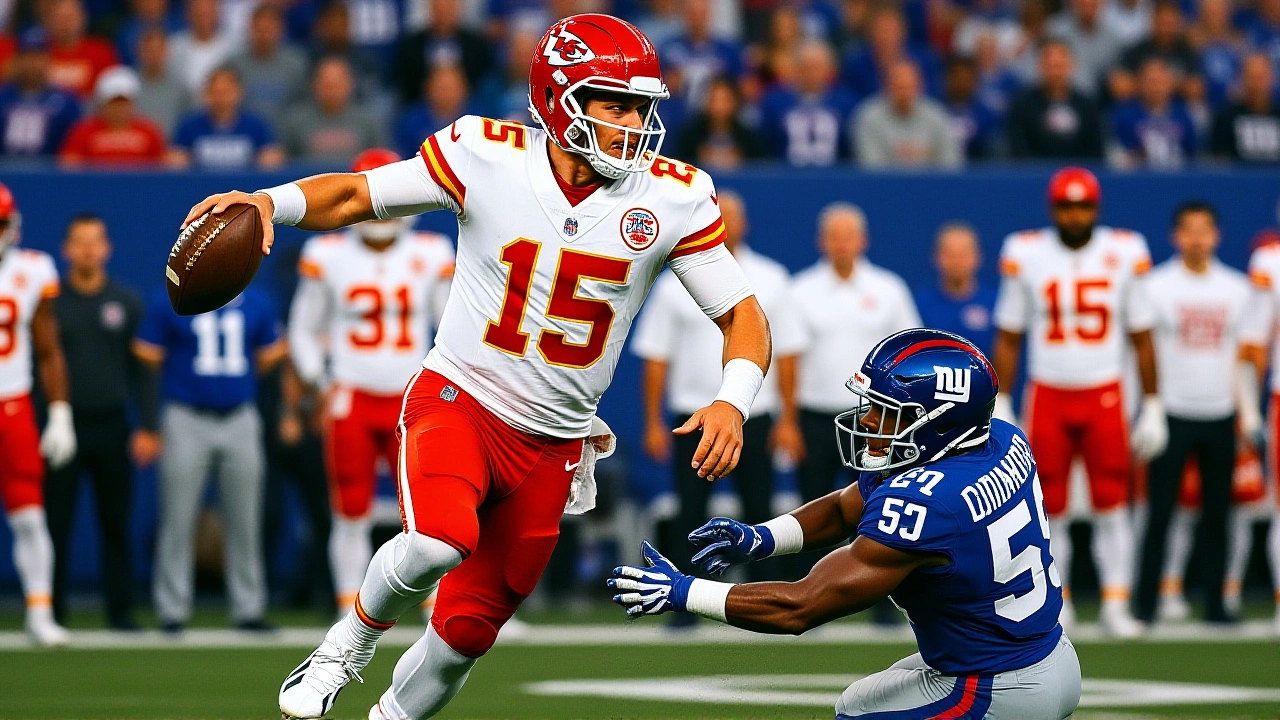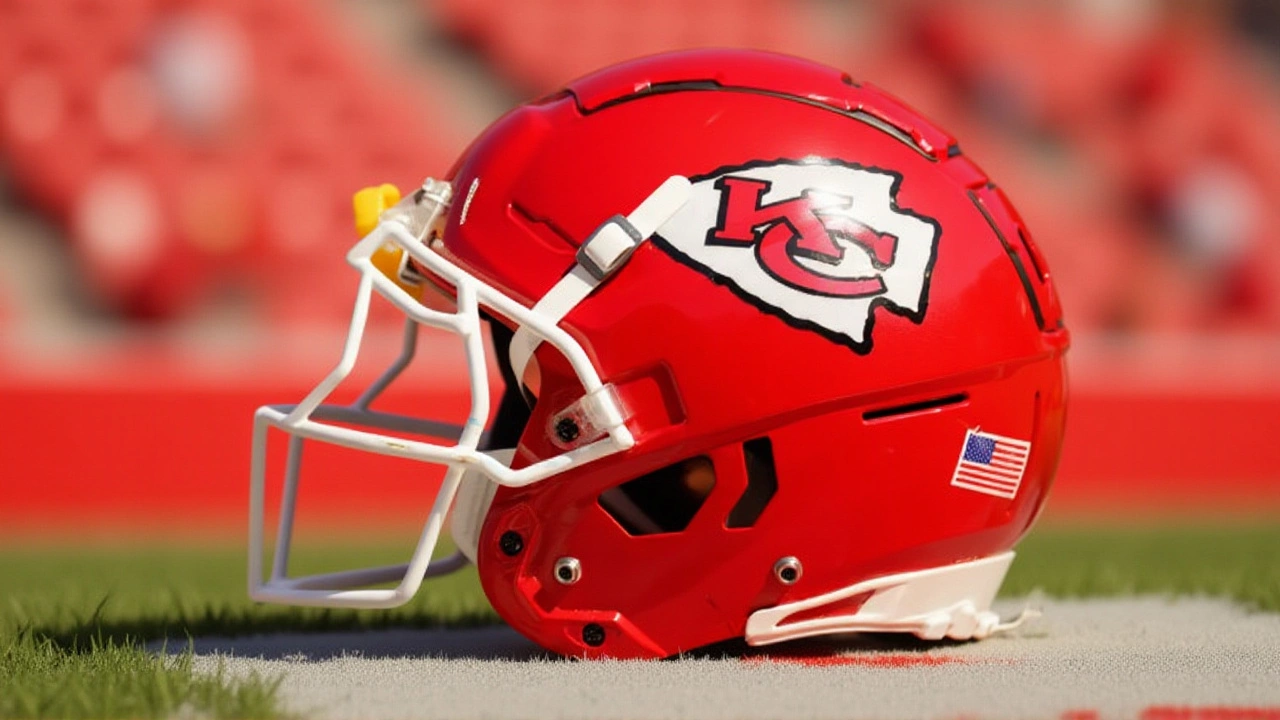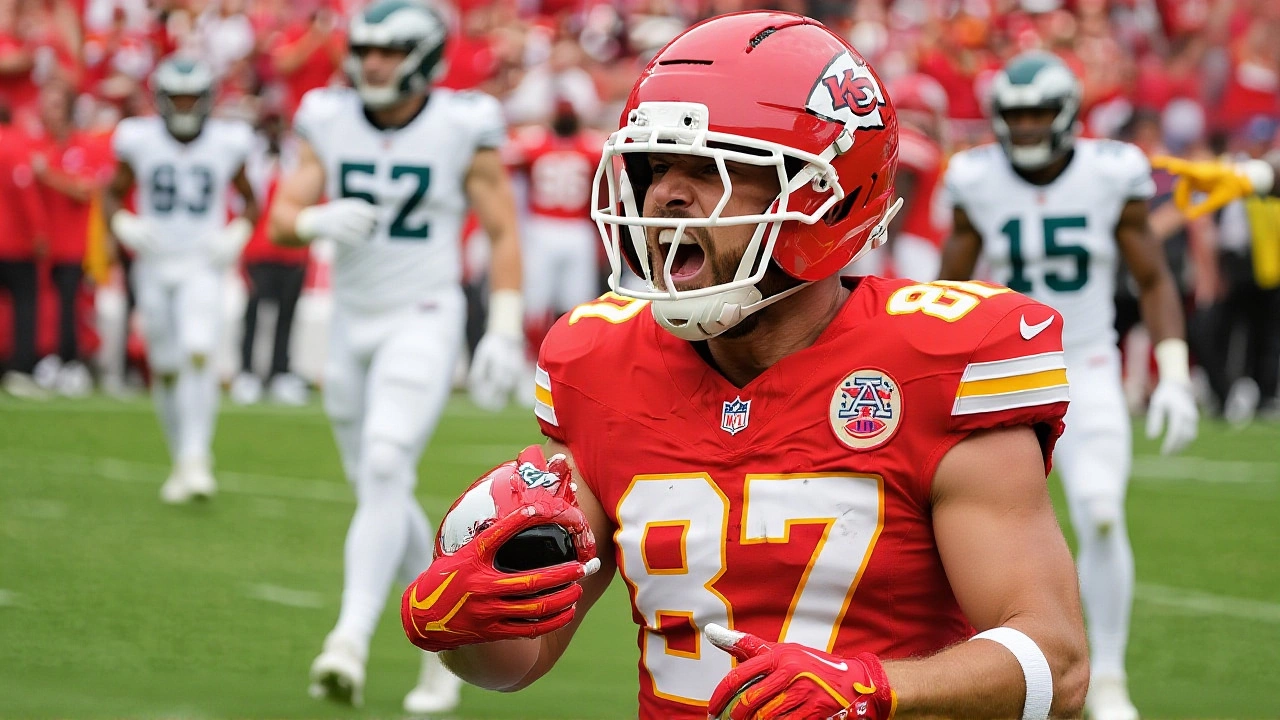When Travis Kelce, tight end of the Kansas City Chiefs erupted on the field, the entire stadium felt the tension. The incident unfolded during the Chiefs‑Eagles regular‑season showdownArrowhead Stadium on September 15, 2025, a game billed as a rematch of Super Bowl LIX. In the second quarter, after Patrick Mahomes sliced through for a rushing touchdown to give Kansas City a 10‑7 lead, Kelce slammed his helmet onto the turf and shouted, “I’m sick of this s---,” a moment captured live by FOX. The outburst set the tone for a dramatic swing that would see the defending champions fall 20‑17 to the Philadelphia Eagles.
Game Overview and the Upset
From the opening kickoff, the contest felt like a chess match. The Chiefs, still adjusting after a flurry of offseason roster changes, leaned heavily on Mahomes’ arm and Kelce’s route‑running. The Eagles, led by Jalen Hurts, deployed a balanced attack, mixing quick passes with a bruising ground game. By halftime, the score was knotted at 13‑10 in Philadelphia’s favor, thanks to a late field goal that slipped through a thin Chiefs defensive line.
What made the loss sting wasn’t just the three‑point margin; it was the narrative. Kansas City entered the season as the reigning Super Bowl champions, and many pundits expected a dominant start. Instead, a single helmet slam and a dropped pass became symbols of deeper issues that the team must confront.
Kelce’s Outburst: What Triggered It?
The camera caught Kelce’s fiery tirade directed, by his own admission, at the offensive line. After Mahomes’ touchdown run, the guard and tackle protecting the pocket appeared to wobble, allowing a sack threat to creep close. Kelce, never one to mince words, let his frustration out on the sideline while the rest of the offense regrouped.
“He’s trying to get guys fired up and going,” Andy Reid, the Chiefs’ head coach, later explained. “I mean, that’s him. He’s that way every week if you keep an eye on him.” Reid’s comments underscored a long‑standing belief: Kelce’s intensity is part of his leadership DNA. Yet, critics argued that the public display was a distraction that could have unsettled younger teammates still finding their footing under Reid’s system.
The Dropped Pass That Shifted Momentum
Midway through the third quarter, Mahomes dropped back and lofted a high‑speed pass toward the right sideline. Kelce, cutting across his route, was positioned just a foot left of the ball. It slipped from his hands and landed in the waiting grasp of Eagles rookie defender Andrew Mukuba. Mukuba’s interception set up a 59‑yard, 10‑play drive that culminated in a Hurts touchdown, widening the lead to 20‑10.
Statistically, the drop was costly. Kelce finished the night with four receptions for 61 yards—still the team‑high—but the missed opportunity directly contributed to a swing in expected points of roughly +4.3, according to NFL’s advanced metrics.

Coach Reid’s Response and the Offensive Line Debate
In the post‑game press conference, Reid addressed both the emotional flashpoint and the glaring protection problems. “We’ve got new pieces on the line, and they need time to gel,” he said. “We’ll evaluate the scheme, but I’m not surprised we had some lapses.” The Chiefs had recently traded veteran guard Joe Thun and signed free‑agent tackle Myles Garrett (not to be confused with the DE), moves that left the unit shorthanded in cohesion.
Analysts noted that the Chiefs allowed 3.8 sacks per 100 pass‑rush attempts in the first two games, a noticeable uptick from the 2.1 rate in the prior season. The protection woes gave the Eagles multiple chances to attack, and Mahomes himself was sacked twice before the game’s final whistle.
Implications for the Chiefs’ Title Defense
Beyond the immediate disappointment, the loss raises questions about Kansas City’s depth. A team that relied heavily on a seasoned offensive line in 2024 now faces a rebuilding phase. If the line cannot protect Mahomes consistently, the Chiefs risk over‑relying on Kelce’s production—a risky proposition given Kelce’s age (34) and the wear-and-tear of a demanding schedule.
Moreover, the NFL’s early‑season parity is evident. Teams like the Eagles, who finished the previous year with a 10‑7 record, are capable of executing disciplined game plans that exploit even slight mismatches. For the Chiefs, the key will be whether they can adjust quickly, keep their star players focused, and avoid letting emotion spill over into performance.

Historical Context: A Super Bowl LIX Rematch
Last season’s Super Bowl LIX saw the Chiefs edge out the Eagles 31‑27 in a thrilling finish. That game hinged on a late‑game drive by Mahomes and a clutch field goal by Harrison Butker. Fast forward a year, and the narrative flipped. The same two franchises met again, but this time the Eagles capitalized on Chiefs’ missteps. The contrast underscores how quickly fortunes can change in the NFL, where a single turnover or emotional lapse can rewrite a season’s storyline.
Frequently Asked Questions
How did Kelce’s helmet slam affect the Chiefs’ morale?
The helmet slam sparked a brief surge of adrenaline among teammates, but it also highlighted frustration with the offensive line. While some younger players admired Kelce’s passion, others felt the outburst diverted focus during a critical stretch of the game.
What was the significance of the dropped pass?
The dropped pass resulted in an interception by Andrew Mukuba, setting up a 10‑play, 59‑yard drive that ended with a Hurts touchdown. That swing turned a potential Chiefs scoring opportunity into a decisive three‑point lead for Philadelphia.
Did the offensive line’s performance influence the game outcome?
Yes. Kansas City allowed three sacks and multiple pressures in the first half, giving the Eagles extra chances to control the clock. The lack of cohesion on the line was a recurring theme in post‑game analyses.
What does this loss mean for the Chiefs’ playoff hopes?
A 20‑17 defeat puts Kansas City at 0‑1, creating early pressure to win the next several games. The loss exposed vulnerabilities that opponents will likely probe, so the Chiefs must tighten protection and keep their playmakers focused to stay on track for a deep playoff run.
How did Andy Reid justify Kelce’s outburst?
Reid described Kelce’s reaction as “typical leadership” — a way to fire up teammates. He emphasized that the emotional display was consistent with Kelce’s weekly intensity and not a sign of discord within the locker room.
